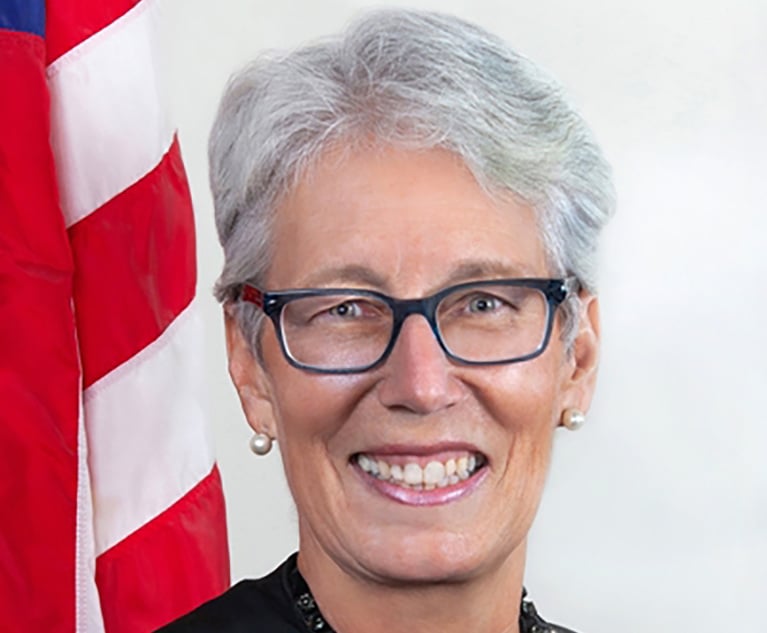 Legislative Hall in Dover.
Legislative Hall in Dover.Del. Senate Approves Bill to Join Compact to Elect President by National Popular Vote
The largely party-line vote in the General Assembly's lower chamber all but assured that Delaware would pledge its three electoral votes to the National Popular Vote Interstate Compact.
March 14, 2019 at 06:35 PM
4 minute read
The original version of this story was published on Delaware Law Weekly
The state House of Representatives voted 24-17 Thursday to approve a bill that would add Delaware to a growing coalition of states trying to elect the president by national popular vote.
The largely party-line vote in the General Assembly's lower chamber all but assured that Delaware would pledge its three electoral votes to the National Popular Vote Interstate Compact, which seeks to bypass the Electoral College by pledging state's electoral votes to the winner of the popular vote nationwide, regardless of who a majority of the states' voters choose to elect.
The Senate passed the measure, SB 22, last week by a 14-7 margin, with two Republican sponsors voting in favor. Gov. John Carney has said he would sign the bill.
The legislation would not altogether abolish the Electoral College, the Constitutional mechanism for electing presidents and vice presidents based on the top vote-getter in each state. Rather, it would provide a workaround to a Constitutional amendment by requiring presidential electors to cast their votes for the candidate who received the most votes in all 50 states and the District of Columbia.
However, the agreement would only go into effect once enough states have signed on to clear the threshold of 270 electoral votes—enough to deliver an automatic victory to the popular vote winner.
So far, 11 mostly “blue” states and the District of Columbia—which have historically supported Democratic presidential candidates in recent elections—have all officially entered the interstate compact, representing 172 electoral votes needed for it to succeed. Along with Delaware, state legislatures in New Mexico and Colorado have also passed the same measure and are awaiting the signatures of their respective governors.
Once those bills are ratified, the total number of pledged electoral votes would equal 189.
Supporters in Delaware have said the measure was necessary to restore fairness to national elections at a time when only a handful of battleground states can determine the outcome of a presidential election.
But opponents said it would diminish Delaware's overall influence in presidential elections, and any changes to the Electoral College system should be achieved through a constitutional amendment.
“My objection really is one of process,” state Rep. Timothy Dukes, R-Laurel, said on the House floor. “My concern is this proposal is really an attempt to do an end-run around the requirements of the Constitution.”
Thursday's vote followed a wave of defections from three House Republicans who had initially co-sponsored the bill but later withdrew their support amid blowback from their constituents. Ultimately, no Republicans in the House voted in favor of the bill, and two Democrats joined their colleagues across the aisle in voting no.
Started in 2006, the compact aims to eliminate so-called “wrong-winner elections,” in which a candidate wins the presidency despite losing the popular vote.
Former President George W. Bush garnered about 540,000 fewer votes than Democratic challenger Al Gore on his way to winning the 2000 presidential election, which was eventually decided in the U.S. Supreme Court. And President Donald Trump in 2016 skated to victory with 304 electoral votes, despite receiving nearly three million fewer popular votes than Hillary Clinton.
In total, four presidents in American history have won the White House and lost the popular vote. The “disconnect” happened twice in the last five presidential elections, each time electing Republicans to the White House while Democrats received more of the aggregate national popular vote.
As it stands, the National Popular Vote Interstate Compact will likely require buy-in from “red” states—which have tended to vote for GOP standard-bearers—or swing states. Realistically, supporters said it wouldn't have any impact until the 2024 presidential election; however, if agreement were to into effect, it would likely face legal challenges that could delay its implementation.
This content has been archived. It is available through our partners, LexisNexis® and Bloomberg Law.
To view this content, please continue to their sites.
Not a Lexis Subscriber?
Subscribe Now
Not a Bloomberg Law Subscriber?
Subscribe Now
NOT FOR REPRINT
© 2024 ALM Global, LLC, All Rights Reserved. Request academic re-use from www.copyright.com. All other uses, submit a request to [email protected]. For more information visit Asset & Logo Licensing.
You Might Like
View All
Attorneys, Professors Share Support for Chancellor Following Musk's Online Attacks
4 minute read

Jurden Announces 2025 Retirement, Capping 24 Years on Superior Court
3 minute read
Trending Stories
- 1Kirkland's Daniel Lavon-Krein: Staying Ahead of Private Equity Consolidation
- 2Many Southeast Law Firms Planned New, Smaller Offices in 2024
- 3On the Move and After Hours: Goldberg Segalla, Faegre Drinker, Pashman Stein
- 4Recent FTC Cases Against Auto Dealers Suggest Regulators Are Keeping Foot on Accelerator
- 5‘Not A Kindergarten Teacher’: Judge Blasts Keller Postman, Jenner & Block, in Mass Arb Dispute
Who Got The Work
Michael G. Bongiorno, Andrew Scott Dulberg and Elizabeth E. Driscoll from Wilmer Cutler Pickering Hale and Dorr have stepped in to represent Symbotic Inc., an A.I.-enabled technology platform that focuses on increasing supply chain efficiency, and other defendants in a pending shareholder derivative lawsuit. The case, filed Oct. 2 in Massachusetts District Court by the Brown Law Firm on behalf of Stephen Austen, accuses certain officers and directors of misleading investors in regard to Symbotic's potential for margin growth by failing to disclose that the company was not equipped to timely deploy its systems or manage expenses through project delays. The case, assigned to U.S. District Judge Nathaniel M. Gorton, is 1:24-cv-12522, Austen v. Cohen et al.
Who Got The Work
Edmund Polubinski and Marie Killmond of Davis Polk & Wardwell have entered appearances for data platform software development company MongoDB and other defendants in a pending shareholder derivative lawsuit. The action, filed Oct. 7 in New York Southern District Court by the Brown Law Firm, accuses the company's directors and/or officers of falsely expressing confidence in the company’s restructuring of its sales incentive plan and downplaying the severity of decreases in its upfront commitments. The case is 1:24-cv-07594, Roy v. Ittycheria et al.
Who Got The Work
Amy O. Bruchs and Kurt F. Ellison of Michael Best & Friedrich have entered appearances for Epic Systems Corp. in a pending employment discrimination lawsuit. The suit was filed Sept. 7 in Wisconsin Western District Court by Levine Eisberner LLC and Siri & Glimstad on behalf of a project manager who claims that he was wrongfully terminated after applying for a religious exemption to the defendant's COVID-19 vaccine mandate. The case, assigned to U.S. Magistrate Judge Anita Marie Boor, is 3:24-cv-00630, Secker, Nathan v. Epic Systems Corporation.
Who Got The Work
David X. Sullivan, Thomas J. Finn and Gregory A. Hall from McCarter & English have entered appearances for Sunrun Installation Services in a pending civil rights lawsuit. The complaint was filed Sept. 4 in Connecticut District Court by attorney Robert M. Berke on behalf of former employee George Edward Steins, who was arrested and charged with employing an unregistered home improvement salesperson. The complaint alleges that had Sunrun informed the Connecticut Department of Consumer Protection that the plaintiff's employment had ended in 2017 and that he no longer held Sunrun's home improvement contractor license, he would not have been hit with charges, which were dismissed in May 2024. The case, assigned to U.S. District Judge Jeffrey A. Meyer, is 3:24-cv-01423, Steins v. Sunrun, Inc. et al.
Who Got The Work
Greenberg Traurig shareholder Joshua L. Raskin has entered an appearance for boohoo.com UK Ltd. in a pending patent infringement lawsuit. The suit, filed Sept. 3 in Texas Eastern District Court by Rozier Hardt McDonough on behalf of Alto Dynamics, asserts five patents related to an online shopping platform. The case, assigned to U.S. District Judge Rodney Gilstrap, is 2:24-cv-00719, Alto Dynamics, LLC v. boohoo.com UK Limited.
Featured Firms
Law Offices of Gary Martin Hays & Associates, P.C.
(470) 294-1674
Law Offices of Mark E. Salomone
(857) 444-6468
Smith & Hassler
(713) 739-1250






